Anish Giri, a prominent Dutch Grandmaster, has publicly defended Hans Niemann, the American GM who has faced accusations of cheating in the chess world. Giri's recent interactions with Niemann on social media have drawn attention to his stance on the controversy.
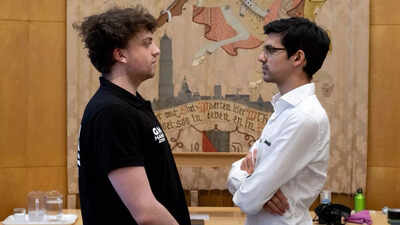
In a conversation with Take Take Take, Giri expressed his concerns about the situation: "It triggered me. The story with Hans, it really triggered me. Because I was all okay with what was happening."
Giri emphasized his initial desire to see concrete evidence of cheating before forming an opinion. "But I wanted to see proof that he was cheating. I was waiting for it. But it just wouldn’t come," he stated.
As time passed without any substantial evidence surfacing, Giri's perspective shifted. "I was waiting for the proof. But at some point, I realized, okay, there is no proof. They don’t have proof," he explained.
Giri strongly criticized the treatment Niemann received in the absence of verifiable evidence. "And he was treated like he was guilty. And nobody convinced me that he was guilty at all. I found the way he was treated extremely unjust," Giri asserted.
He further elaborated on his concerns, stating, "Especially compared to other people. And with Hans, suddenly there was this massive thing, which I found unjust as long as it’s not proven. It sort of triggered me as well, in some sense. I felt that, you know, why should I treat him badly based on speculation? And if he hadn’t been cheating, what has happened to him is very unjust.”
Giri also shared his insights on the complex dynamics among top chess players. "First of all, these relationships are extremely complicated. A combination of rivalry and friendship and mutual respect and hatred all at the same time," he noted.
He clarified that the competitive spirit, while intense, does not extend to wishing personal harm on rivals. "You should also realize that when we speak of this kind of rivalry, they would never wish each other bad health. Or, God forbid, that something bad would happen in their life or in their family. Or that their house would get flooded. They don’t want that. But they want them to lose," Giri explained.
He concluded by highlighting the cyclical nature of competition: "They want them to lose badly. And again and again. And I wanted him to lose. But now that he lost, I want him to get back up, so I can punch him again, you know?”
Newer articles
Older articles
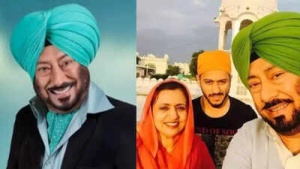 Jaswinder Bhalla passes away: All you need to know about his wife Parmdeep Bhalla, son Pukhraj Bhalla, daughter Ashpreet Kaur and family
Jaswinder Bhalla passes away: All you need to know about his wife Parmdeep Bhalla, son Pukhraj Bhalla, daughter Ashpreet Kaur and family
 'K-Pop Demon Hunters' fume over DELETED Rumi and Jinu kiss; Sparks hopes for EPIC reunion in sequel
'K-Pop Demon Hunters' fume over DELETED Rumi and Jinu kiss; Sparks hopes for EPIC reunion in sequel
 Millie Bobby Brown and Jake Bongiovi welcome first child; when actress revealed WHY she wanted to be a mom at 21
Millie Bobby Brown and Jake Bongiovi welcome first child; when actress revealed WHY she wanted to be a mom at 21
 'Panchayat' Filming Location: Unveiling the Real Village Behind the Hit Show
'Panchayat' Filming Location: Unveiling the Real Village Behind the Hit Show
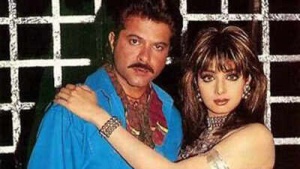 Sridevi's 'Laadla' Unease: Raveena Tandon Reveals Eerie Set Coincidence After Divya Bharti's Death
Sridevi's 'Laadla' Unease: Raveena Tandon Reveals Eerie Set Coincidence After Divya Bharti's Death
 Anupam Kher calls Raj Shamani ‘fake’ for cutting out his advice on humility: ‘You should always research your guests'
Anupam Kher calls Raj Shamani ‘fake’ for cutting out his advice on humility: ‘You should always research your guests'
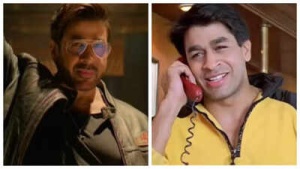 'The Ba***ds Of Bollywood': Rajat Bedi fans celebrate comeback of B-town's 'OG Villain'; say 'Aryan Khan ne izzat rakhli bhai ki'
'The Ba***ds Of Bollywood': Rajat Bedi fans celebrate comeback of B-town's 'OG Villain'; say 'Aryan Khan ne izzat rakhli bhai ki'
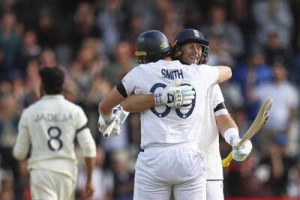 India-England Test Series Ignites Streaming Frenzy: JioHotstar Hits Record 89.1 Million Viewers
India-England Test Series Ignites Streaming Frenzy: JioHotstar Hits Record 89.1 Million Viewers
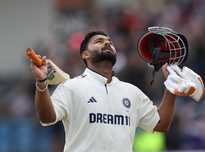 Rishabh Pant: Greg Chappell Lauds Revolutionary Cricket Style and Match-Winning Impact
Rishabh Pant: Greg Chappell Lauds Revolutionary Cricket Style and Match-Winning Impact
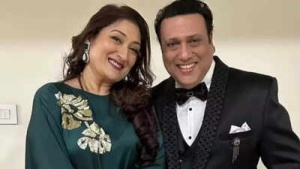 Sunita Ahuja says 'Mere jaisa Govinda ko koi nahi pyaar kar sakta' amid divorce rumours: 'Purana Govinda, waapas aaja tu yaar'
Sunita Ahuja says 'Mere jaisa Govinda ko koi nahi pyaar kar sakta' amid divorce rumours: 'Purana Govinda, waapas aaja tu yaar'